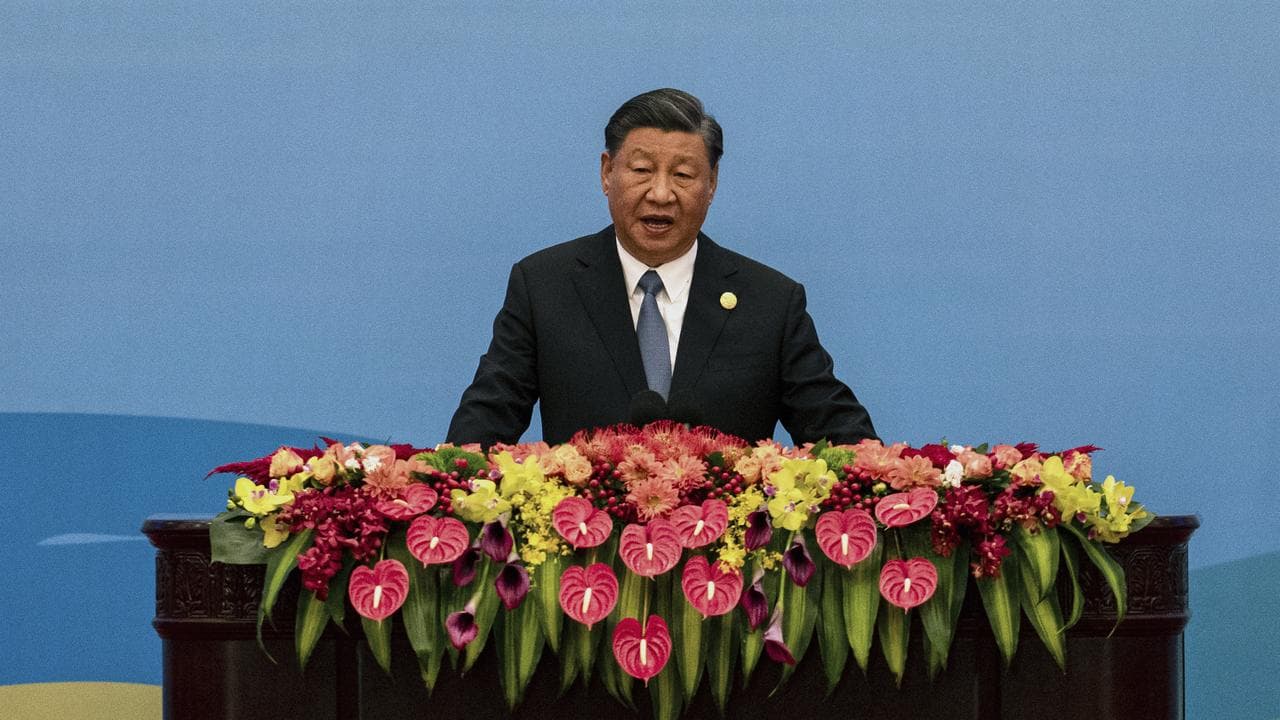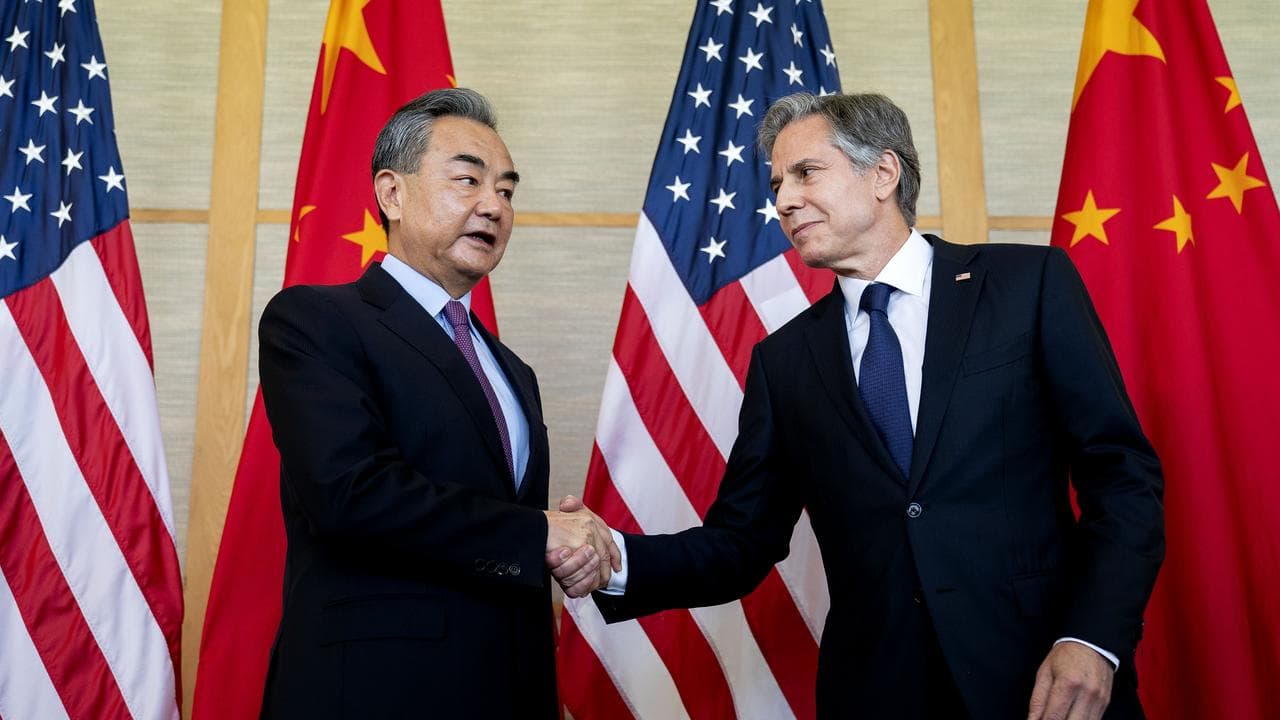
Chinese President Xi Jinping says China is willing to co-operate with the United States as both sides manage their differences and work together to respond to global challenges, according to Chinese state media.
Whether or not the United States and China could establish the "right" way of getting along would be crucial to the world, Xi said in a letter delivered at an annual dinner of New York-headquartered National Committee on United States-China Relations.
Xi's call for more stable bilateral ties, which he says should be built on the principles of "mutual respect, peaceful co-existence and win-win co-operation", comes before a key visit by Foreign Minister Wang Yi to Washington later this week.
The trip from Thursday through Saturday by the top Chinese diplomat will be the highest-level in-person engagement ahead of an expected meeting between US President Joe Biden and Xi in San Francisco at the November Asia-Pacific Economic Cooperation (APEC) summit.
Several top US officials including State Secretary Antony Blinken met their Chinese counterparts in Beijing this summer.
Washington's top priority has been to ensure the intense competition between the world's two biggest economies and their disagreements over a host of issues from trade to Taiwan and the South China Sea does not veer into conflict.
"Chinese observers believe the visit (by Wang) will pave the way for a possible meeting between the heads of the two states but added that Washington needs to make concrete efforts to address Beijing's concerns and show its sincerity," China's state-controlled Global Times wrote in a commentary.
Earlier Blinken told the UN Security Council that he will work with Wang to prevent the conflict in the Middle East from spreading when they meet on Thursday.
"Members of this council, and permanent members in particular, have a special responsibility to prevent this conflict from spreading," Blinken said, warning Iran and its proxies in the region not to open up more fronts in the war.
"I look forward to continuing to work with my counterpart from the People's Republic of China to do precisely that, when he visits Washington later this week."
Wang will hold talks with Blinken and President Joe Biden's national security adviser, Jake Sullivan.

White House spokesperson Karine Jean-Pierre said the Chinese minister would also meet with Sullivan on Friday.
She said Blinken and Wang would address challenging issues, including misperceptions and miscommunications, and ways they can work together.
Analysts said that while China had expressed concern about the US approach to the conflict, the two sides share a common interest in avoiding a wider regional war.
"That might be a basis for some common ground, even if China likely sees some benefits to the hit the United States is taking in the region among its Arab partners," said Dalia Dassa Kaye, a senior fellow at the UCLA Burkle Centre for International Relations.
However, she said Beijing's actual leverage could be limited, while others questioned Beijing's willingness to use it.
Jon Alterman, head of the Middle East program at Washington's Center for Strategic and International Studies, said China, as a major oil consumer, certainly has an interest in preventing a direct US-Iranian confrontation as it would spike oil prices.
"Still, the Chinese are unlikely to do any heavy lifting here," he said. "I expect they'll want a seat at the table when the Israel-Gaza struggle gets resolved, but they don’t feel much need or ability to hasten resolution."




